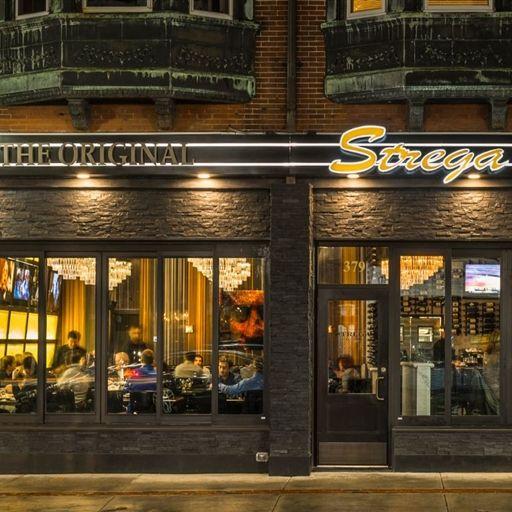North End restaurants in Boston are mounting a challenge against newly imposed outdoor dining fees, igniting a debate over the financial burden on local eateries. Renowned for its vibrant culinary scene, the North End has long been celebrated for its charming streetside dining, which has become an integral part of its cultural and economic fabric. As these historic establishments grapple with the unexpected costs, business owners argue that the fees threaten their recovery and the neighborhood’s appeal as a premier dining destination. This clash highlights the ongoing tension between municipal regulations and the viability of small businesses in one of the city’s most beloved districts.
Table of Contents
- North End Restaurateurs Voice Concerns Over New Fee Structure
- Economic Impact on Small Businesses in Historic District Examined
- Community Leaders Advocate for Fairer Outdoor Dining Policies
- Proposed Solutions to Balance Revenue and Support Local Eateries
- In Summary
North End Restaurateurs Voice Concerns Over New Fee Structure
North End restaurateurs are raising alarm over a newly implemented fee structure aimed at outdoor dining permits,which they argue could stifle the neighborhood’s vibrant culinary scene. Business owners cite concerns that the increased financial burden disproportionately affects small, family-run establishments that have relied heavily on outdoor seating to stay afloat post-pandemic. Several proprietors warn that the fees undermine efforts to attract customers who favor open-air dining, a staple of the North End’s charm and appeal.
Voicing their objections in recent community meetings, restaurateurs highlighted key issues including:
- Steep and sudden hike in permit costs without gradual phase-in or consultation.
- Unclear criteria for fee calculation, causing budgeting challenges.
- Potential reduction in seating capacity, limiting revenue streams.
- Negative impact on local employment due to anticipated cutbacks.
Many are calling for a reevaluation of the policy with greater stakeholder input to preserve the North End’s unique dining culture and ensure economic viability for its historic eateries.
Economic Impact on Small Businesses in Historic District Examined
Local restaurateurs in the North End are sounding the alarm on the newly imposed outdoor dining fees, warning that these additional costs threaten the delicate economic balance of small businesses in the historic district. Many owners argue that the fees-introduced as part of a citywide initiative to regulate public space usage-are disproportionately affecting eateries that rely heavily on seasonal outdoor seating to offset slim profit margins.With the area’s tourism still recovering, restaurant operators express concern that the financial burden could lead to reduced hours, layoffs, or even permanent closures.
Business representatives highlighted several key challenges stemming from the fee implementation:
- Increased operational expenses cutting into narrow profit margins
- Potential decline in customer volumes due to limited outdoor seating
- Difficulty competing with larger chains unaffected by similar fees
- Disproportionate impact on family-owned and long-established establishments
City officials are reportedly in discussions to explore alternative solutions to support these vital community businesses while balancing public space management goals. Meanwhile, the North End’s culinary landscape faces an uncertain future as the debate continues.
Community Leaders Advocate for Fairer Outdoor Dining Policies
Local community leaders have voiced strong opposition to the recently imposed outdoor dining fees, arguing that the new costs disproportionately impact small businesses struggling to recover post-pandemic. They emphasize that these charges could lead to reduced seating capacity and threaten the vibrant street culture that defines the North End neighborhood. Advocates are calling for a more equitable approach, urging policymakers to consider exemptions or scaled fees based on restaurant size and revenue.
In a united front, restaurant owners and community activists have outlined several key demands to guide fairer regulations:
- Fee waivers for businesses with fewer than 20 seats
- Extended grace periods before fees take effect
- Transparent allocation of fee revenue to support local dining infrastructure
- Ongoing dialog between city officials and hospitality stakeholders
This coalition insists that maintaining affordable and accessible outdoor dining is essential not only for economic recovery but also for preserving the neighborhood’s unique character and community engagement.
Proposed Solutions to Balance Revenue and Support Local Eateries
City officials and business leaders are exploring a range of compromises designed to ease the financial burden on North End eateries while still generating necessary public revenue. Among the proposed measures are tiered fee structures based on restaurant size, seasonal fee waivers during slower months, and the introduction of grants or subsidies for small businesses demonstrating hardship.Advocates argue that these tailored approaches could sustain outdoor dining’s appeal-crucial for local commerce-without imposing uniform costs that might force some venues to scale back or close.
Community-driven initiatives are also gaining traction as a way to reinforce support for local restaurants. Suggestions include:
- Collaborative marketing campaigns to boost visitor traffic to the North End dining district
- Pop-up events and food festivals that spotlight participating businesses
- Partnerships with local artisans and farmers to reduce supply expenses
- Flexible permit options that encourage innovation in outdoor dining layouts
By adopting a multifaceted approach, stakeholders aim to create a balanced ecosystem where revenue goals and business viability coexist, safeguarding the vibrant culinary culture of the North End.
In Summary
As North End restaurateurs continue to voice their concerns over the newly imposed outdoor dining fees,the debate highlights the ongoing struggle between supporting local business recovery and municipal revenue needs. Stakeholders on both sides await further dialogue as the community watches closely to see how these challenges will shape the future of dining in this historic neighborhood. The outcome will not only affect the vibrant culture of the North End but also set precedents for how cities balance economic pressures with preserving unique culinary destinations.

